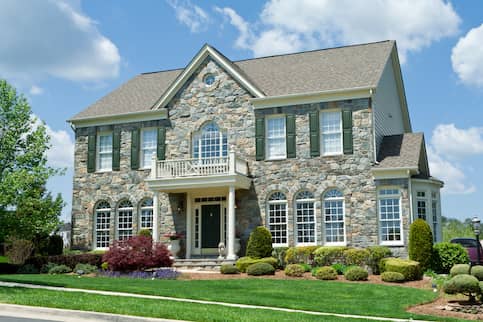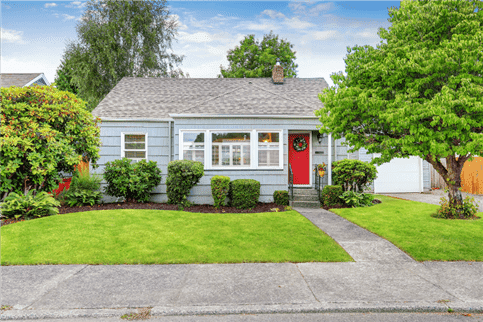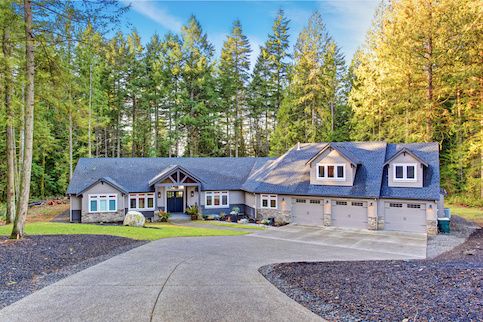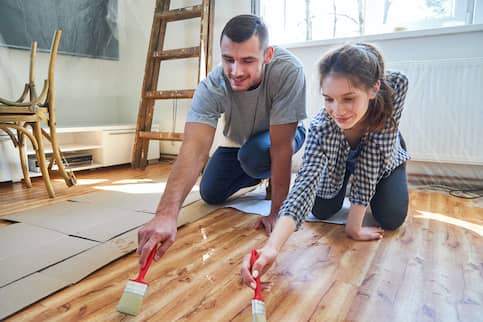It’s easy to worry that short-term economic events may reduce the value of your home and affect the value you hope to build by owning a home. But historically, homes reliably increase in value over time – and there are projects you could take on that would boost the value of your property.
What Is Home Appreciation?
In real estate, the term appreciation refers to the increase in the value of a property over time. From a macro level, appreciation may result from inflation, increased job opportunities in your market, and overall development in your town. You can raise the appreciation value with home improvements.
Just think about how valuable this is for a real estate investor; if you purchase a home or rental property, its value can increase over time.
This increase in property value or monthly rents can be seen as a profit once you sell your home or as an increase in monthly earnings on a rental property.
It can also be a valuable tool for a homeowner or investor to increase their property value by making a few home improvements.
While there are several factors that affect property value, here are some home improvements that have shown to increase property value:
- Bathroom upgrade
- Kitchen remodel
- Replacing windows
- Adding a deck or patio
The good thing about increasing your property value is that you are probably increasing the home equity if you have a mortgage.
See What You Qualify For
Buy A Home
Discover mortgage options that fit your unique financial needs.

Refinance
Refinance your mortgage to have more money for what matters.
Tap Into Equity
Use your home’s equity and unlock cash to achieve your goals.
What Is The Average Appreciation Rate For Homes?
The national average appreciation rate is 3% – 5%. The first thing you have to understand is that your land will drive the overall appreciation value of your home.
Another issue you could have with your home’s value is that it’s in a constant state of depreciation over time.
The reason this is happening is due to maintenance, renovations and general upkeep. If you don’t maintain your home, its value can decrease.
Currently, we are all below the national average when it comes to home appreciation value.
But, but those of us who keep our homes in stable condition have a leg up when it comes to our home’s value, especially if you are trying to determine if your home will appreciate.
Find A Mortgage Today and Lock In Your Rate!
Get matched with a lender that will work for your financial situation.
How Do You Calculate Property Appreciation?
The best way to calculate appreciation is to do it as a percentage. You need to divide the change in the value by the initial cost and multiply by 100. Let’s say your home was worth $150,000 when you purchased it, and now its market value is $180,000.
If you’re trying to find how much the home has appreciated by the dollar amount, you would just subtract the original home value ($150,000) from the current value ($180,000); this leaves you with an appreciation value of $30,000.
To get this percentage, you want to divide the $30,000 into $150,000 to get 0.2. You then multiply by 100 to see that the price of your home appreciated by 20%.
Now, if you don’t want to play around with all of those calculations, you can use this U.S. Federal Housing Finance Agency’s House Price Calculator.
Now, two key factors influence a home’s appreciation:
- Future market growth: What happens in the future will affect the price of your home and if you want to get an idea of where your home’s appreciation could go, figuring out the future growth is essential.
- Current home value: Your home’s current value is essential because you will use this data to determine how much of an increase you have had.
If you want to predict your home’s appreciation, all you’ll do is multiply the future market growth factor by your current home value.
What Would Add The Most Value To My House?
So, you’re probably wondering what home renovation projects will increase your home value the most. We go over some of them below:
- Fix up the exterior: This is important no matter if you have an investment property and want to raise rents or if you wish to try to increase your home’s value when you sell.
- Redo the interior: Let’s face it, if the inside of your home looks dated, trashed, or un-kept, it’s going to make it hard to sell your home for the price you are looking for. It would be even harder to justify monthly rates on an investment property.
- Make your home more energy efficient: If you make your home more energy-efficient, it can increase the value of your home and, at the same time, help decrease your monthly bills such as gas and electricity.
- Updating your home technology: Adding more advanced thermostats and security systems to your home can increase value. The closer you can get your home to become a “smart home,” the better your opportunity to improve your home’s value.
- Increase your square footage: Square footage is gold when it comes to the value of your home. The more the square footage, the more value you can put behind your home. Things like adding a deck or building a guest house can increase the value of your home.
Of course, everyone doesn’t have the cash on hand to just start making such drastic changes to their home; however, you still have options.
You could take out a personal loan or borrow from relatives to complete a renovation that would increase the value of your home.
You also have the option of a cash-out refinance instead of going with home improvement loans.
Utilizing a cash-out refinance allows you to obtain a mortgage that includes your home’s equity that you can pocket for the renovations.
For example:
If your home is valued at $450,000 and you owe $300,000 on the mortgage, you could do a cash-out refinance for a new mortgage of $400,000.
This would allow you to keep $50,000 in equity, take $100,000 in cash, and have a new mortgage based on $400,000.
You can use this cash to renovate your home, which will help increase its value.
The Bottom Line
While low upkeep and things like a pandemic can depreciate your home’s value, there are still things that you can do to add value to your home that allows its value to appreciate.
And while projections can sometimes scare us, the actual truth can be pretty different. For instance, the World Property Journal shows that home values jumped 5.9% in August despite the pandemic.
If you have equity in your home, now is the best time to fund a home improvement project with a cash-out refinance. You can click here to learn more.
Find A Mortgage Today and Lock In Your Rate!
Get matched with a lender that will work for your financial situation.

Victoria Araj
Victoria Araj is a Staff Writer for Rocket Companies who has held roles in mortgage banking, public relations and more in her 15-plus years of experience. She has a bachelor’s degree in journalism with an emphasis in political science from Michigan State University, and a master’s degree in public administration from the University of Michigan.








